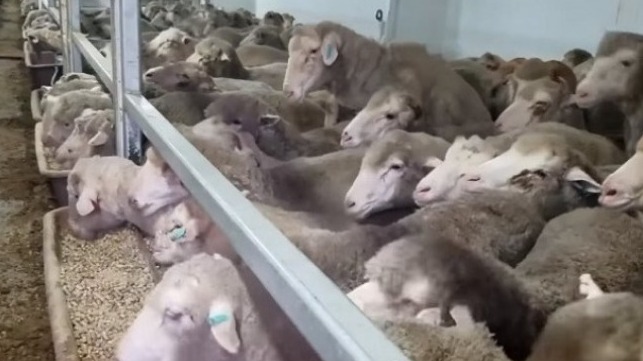Australian Government Wants More Live Export Observers

Australia's Department of Agriculture has announced that it will sign an order prohibiting live sheep exports to the Middle East from June to August - Australia's winter time and the Middle East's summer time - although the industry already agreed to this voluntarily last year.
The Department will also require independent observers on all voyages that can accommodate them, having already placed observers on a number of voyages last year and reviewed their reports.
The announcement is a response to on-going concern about whistleblower footage taken on five voyages including a 2017 Awassi Express voyage when thousands of sheep died of heat stress.
The Department is now proposing a new requirement for vessels to be equipped with automated data logging equipment to record wet bulb temperatures and for that data to be reported to the Department for all voyages during northern summer. The Department will use the data to better understand sheep responses to heat. “This new evidence will be closely scrutinized to build a comprehensive evidence base for live export regulation,” says the Department, which remains committed to allowing the industry to continue.
The Department placed observers on a number of voyages last year. After a Freedom of Information battle, the RSPCA gained access to some of the observers' reports, although they were heavily redacted by the government prior to their release. Multiple reports documented symptoms of heat stress among the livestock over many days of the voyage. Some deaths were also attributed to heat stress, others to disease, infections, feeding issues and injuries - either sustained on board or as a result of shearing prior to loading.
The reports brought to light issues that could affect the information used to assess investigations into high-mortality voyages such as the Awassi Express one. The temperatures recorded around the ships were of variable quality on some voyages. One observer noted that temperatures were taken twice a day, not at the hottest part of the day. Another noted they were taken four times a day, again not at the hottest part of the day. On another vessel, they were taken once a day. Several observers noted faulty equipment, difficulty in taking readings and crew missing taking all measurements.
The observer reports also highlighted a range of animal welfare issues. Several observers noted that vessels approved by the Australian Maritime Safety Authority (AMSA) to carry livestock sailed a zigzag pattern to increase airflow across open decks to lessen the effects of heat stress on the livestock. Extra fans were installed on the closed decks of another vessel to boost ventilation, and on entering the Persian Gulf, another vessel's crew took particular notice of the weather report and avoided areas of high humidity.
Some noted flooding from rain or from ballast tanks in some pens, and on one vessel, the cattle were not washed down for eight days, as the relative distribution of livestock and fodder meant the vessel's trim could not be safely adjusted to allow the washwater to flow off the decks.
One vessel had a pen approved to hold livestock by AMSA that, in practice, needed the crew to erect an extra gate to stop livestock falling down grates. In the pens that are to have a different floor area depending on whether sheep or cattle are held, AMSA requires that a gate be put up. However, the observer noted that as soon as the vessel sailed, these gates were removed to give the livestock more space and because some animals tend to jump through and get caught in the empty space.
One observer witnessed an outbreak of pinkeye which resulted in around 20 percent of sheep infected in some pens. “At offload, I observed five or six sheep that were effectively blind and had to be kept within a group of moving sheep to prevent them colliding with fixed objects.”
Some observers noted occasions where water troughs were empty or where dusty or moldy food was found in troughs. One observer noted that, despite prolonged observation, it was not possible to validate that all sheep were getting their turn at the feed trough. Another noted a lack of fodder available once unloading had commenced and crew were busy with other tasks.
The RSPCA says it took nearly six months of fighting to obtain the observer reports which it says make it clear that, despite the redactions and the industry knowing it was being observed, the conditions on board the Awassi Express in 2017 weren’t the exception but the norm.
As a result of the whistleblower footage, and the observer reports, politicians and voters from a spectrum of political parties have spoken out against the live export trade. The Labor Party, currently in opposition, has committed to phase out the live export of sheep, a move supported by the Greens and the Animal Justice Party.
